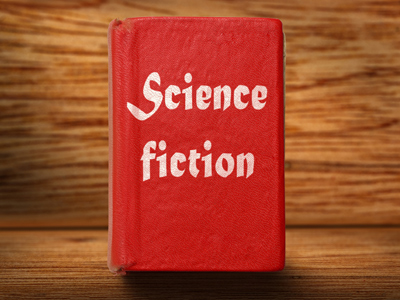
Science fiction is a type of narrative.
Writing Narrative
Get ready for a cool adventure with this KS2 English quiz all about writing stories - we call them 'narratives'! Whether it's a mystery, a fable, or an action-packed tale, narratives are super fun to write. You've probably crafted your own stories at school!
Authors, just like you, have their favourite types of stories. Do you have a favourite author who writes the kind of stories you love? Let's explore the world of narratives together! Jump into this quiz and show off your fantastic story-writing skills!
Discover the Joy of Learning Together with QuizzesTo see a larger image, click on the picture.
1 .
2 .
3 .
4 .
What is a 'setting'?
The events that happen in a story.
The point of view from which a story is told.
The main character.
The time and place of the story.
When setting a story, it's good to consider it in detail. What's the weather like? What time of year is it? What time of day? What does it feel like to be in the place where the story is set?
5 .
'Watch out!' Harry shouted. 'Watch out for what?' Rachael cried. What is wrong with this dialogue?
Rachael's dialogue shouldn't have a question mark.
Rachael's dialogue should begin on a new line.
Rachael's dialogue should come first.
Harry's dialogue shouldn't have an exclamation mark.
When writing dialogue, always remember: 'New speaker - New line'.
6 .
When writing a story, how should you tell the reader that a character is bossy?
Use 'bossy' as an adjective for the character.
Use a stage direction.
Add an aside to the reader ('The others think Alex is bossy').
Include a scene or two where the character is behaving in a bossy manner.
It's more effective in stories 'to show, not tell'. Your reader is more likely to believe a character is bossy after seeing that character behave bossily.
7 .
8 .
9 .
**Unlimited Quizzes Await You! 🚀**
Hey there, quiz champ! 🌟 You've already tackled today's free questions.
Ready for more?
Ready for more?
🔓 Unlock UNLIMITED Quizzes and challenge yourself every day. But that's
not all...
not all...
🔥 As a Subscriber you can join our thrilling "Daily Streak" against other
quizzers. Try to win a coveted spot on our Hall of Fame Page.
quizzers. Try to win a coveted spot on our Hall of Fame Page.
Don't miss out! Join us now and keep the fun rolling. 🎉
**Unlimited Quizzes Await You! 🚀**
Hey there, quiz champ! 🌟 You've already tackled today's free questions. Ready for more?
🔓 Unlock UNLIMITED Quizzes and challenge yourself every day. But that's not all...
🔥 As a Subscriber you can join our thrilling "Daily Streak" against other quizzers. Try to win a coveted spot on our Hall of Fame Page.
Don't miss out! Join us now and keep the fun rolling. 🎉

















